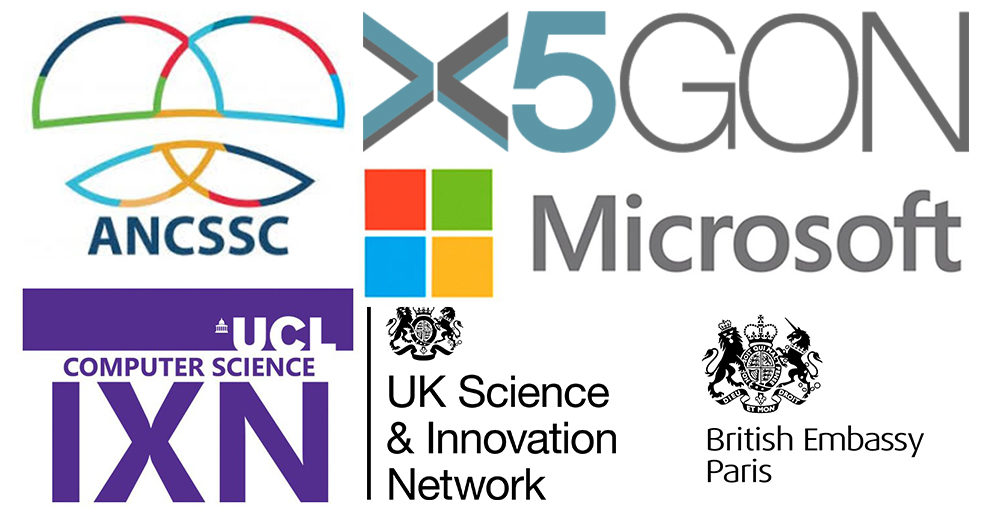 Workshop
Workshop
AI for the Common Good: F’AI’R Education Hackathon
X5GON hackathon on Open Education and Artificial Intelligence
What is this hackathon about?
A number of countries are developing Open Education with AI. The ability to generate dynamically created courses will lead to a number of innovative solutions to build capability and skills. The hackathon will comprise three categories that seek to prototype knowledge exchanges that build capability across administrative, health and engineering skills, with application to NGOs and their staff as an example of its use. The solutions will account for multilingual and literacy needs alongside various types of educational bias.
Who is supporting this hackathon?
This hackathon supported by the UK Science & Innovation Network at the British Embassy in Paris, the United Nations ANCSSC, X5GON and UCL Computer Science intends to allow students at several international universities to take part in an early requirements capture process, leading to design and build stage to develop a working prototype that supports Open Education with AI.
X5GON Overview
X5Gon is a breakthrough EU H2020 project, creating a solution that will help users/students find what they need not just in Open Education Resource (OER) repositories, but across all open educational resources on the web. This solution will adapt to the user’s needs and learn how to make ongoing customized recommendations and suggestions through a truly interactive and impactful learning experience.
This new AI-driven platform will deliver OER content from everywhere, for the students’ need at the right time and place. This learning and development solution will use the following solutions to accomplish this goal:
- Aggregation: It will gather relevant content in one place, from the projects case studies as well as external providers and other preferred resources.
- Curation: AI and machine learning will be key to curate relevant and contextual content and external students at the right time and point of need.
- Personalization: It will make increasingly personalized recommendations for learning content to suit students’ needs, based on the analysis of relevant factors.
- Creation: Large, small and medium-sized universities have tacit knowledge that can be unlocked and re-used. This approach will allow any organization to release and build their own content libraries quickly and conveniently to share with the world and vice versa.
Hackathon Process
There are 3 themes for students to choose from, which are:
- NGO Knowledge exchange: How can we build capability through the exchange of knowledge between established and less accomplished organisations and their staff?
- Health knowledge exchange: How can we build capability where there is poor access to healthcare training and education?
- Engineering knowledge exchange: How we can we build capability through engineering education for all, including access to international conference coverage ?
There are 4 Hackathon Events in this series.
For the first event, first year (new) students are taking part in a Ideation session, on September 24th to come up with requirements and early sketch designs. This session is to be done in pairs and will be submitted on Moodle.
The second event, Design Prevision, on October 16th , will be undertaken by second year CS student teams of 3s where they will take part in design and HTML walk-through building a mash up or mock up of the projects features. There will be special focus lab sessions on October 28th, 29th and 30th where invited guest speakers and industry mentors will be available to support the teams. They will submit by November 10th on Moodle.
The third event, Build and Test Hackathon, takes place over 48 hours on Monday 25th and Tuesday 26th November with several leading companies joining to support the mentoring of the teams with the actual build of their solutions.
For the final fourth event, any partner country can submit up to 3 teams to the final event at the British Embassy in Paris in February 2020. The final teams will take part in a final Hackathon in Paris where all of the European teams will compete in a new one day Open Education and AI challenge that will be presented back to the judging panel on Day 2. The judging panel will announce the overall winning team in Paris.
The students then have until January 10th 2020 to submit their technical build demos with a supporting video and GitHub repository. The top 3 teams from each country will be nominated by a University and British Embassy panel and the selected 9 students from each country will have a final 2 day hack in Paris in February 2020.
Hackathon materials for X5GON
The provisional learning materials that are presented to the participants are available on this page
- X5GON LAM API details
- X5GON API endpoint manual in pdf
- X5GON API enpoint maual in ppt
- Online Azure Tutorial
- Azure notebook in .ipynb format of the notebook just in case the online version doesn’t work (here)
- Final X5GON dataset
- Ideas session slides










